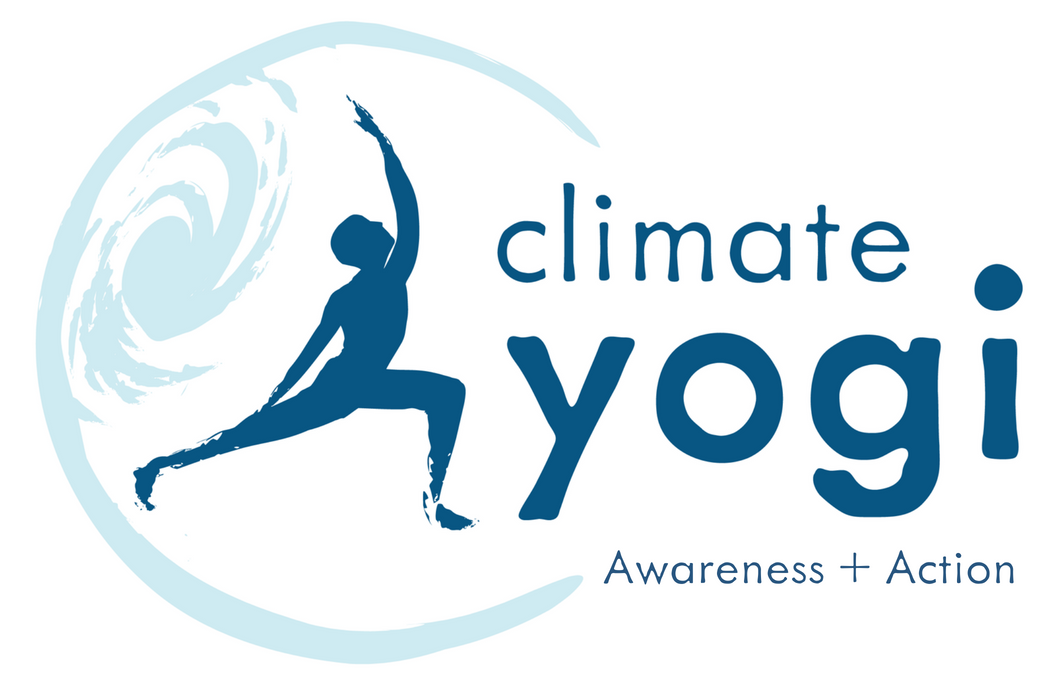Earth Care Choices
One of the foundational teachings of yoga is that we don’t have a choice between acting and not acting. We only have the choice of what action to take because everything we do - even attempting to not do anything - is in fact an action. This is the basis for the statement on the ClimateYogi website: “By being alive on Earth, we're all acting on climate change.”
So what we have in every moment is a choice of how to act. If we want to care for the Earth, to live in ways that support the flourishing of life and reverse the current trend of diminishing life on the planet, what do we do? How do we live the Earth Care ethic? I believe this is a serious and important matter and I also believe that we need to have a light touch with ourselves - not beating ourselves up over things we can't control - but doing the best that we can each day, and with each decision.
“Always do your best. Under any circumstance, simply do your best, and you will avoid self-judgment, self-abuse, and regret” - Don Miguel Ruiz
Two of the ethics taught in yoga are ahimsa (non-harming) and aparigraha (freedom from greed). I've always appreciated these as ethical considerations; they aren't commandments, and I think it's counterproductive to consider them in a black/white or right/wrong framework. All our actions have consequences, and few actions can possibly be entirely free of harm for someone or something. Instead, we do our best to understand the consequences of our actions and then make the best choice that we can.
Given a choice between food from industrial agriculture or a true organic farm (which is different from the USDA Organic label), consideration of ahimsa would steer me toward the organic choice, both because of the harm that industrial agriculture does to the environment and the improved nutrition from the organic food.
When thinking about a new shiny object that has caught my attention, the ethic of ahimsa has me consider the environmental impact of its production and whether people have been exploited in the process. The ethic of aparigraha has me consider if this is something I truly need. If there are harmful aspects of its production (or I don't know) and if it isn't something I truly need, I might choose to forego it.
That's how I view the application of the ethical principles, and I think in the end each of us has to do our best with our choices. The choice that is right for one person in one set of circumstances may be different than for another person.
How can we make good choices if we don't know the impact of our actions? If we're acquiring something, we'd like to know where it is from, how it is made, who made it and under what conditions so that we can understand the impact and make our ethical decision. But the global economic system makes it very hard to know the impact of our actions. I think this is an intentional feature of the system. When producers can keep consumers in the dark about impacts they can cut corners on production, exploit works, pollute the environment, and increase profits.
If you knew that the palm oil in your shampoo came from a plantation built on a recently cleared tropical rainforest that destroyed habitat for orangutans and many other species and contributed to global warming, would you have chosen to buy the shampoo? But you didn't know - you really couldn't know.
Forest on the left - Palm oil plantation on the right
There are two ways that I try to make progress on this. One is to assume that if I don't know enough about the product to understand the impacts of its production, that there are likely harmful impacts. That doesn't mean I won't buy it, but I'm less likely to. I might delay the purchase to see if I can find out more, I might look for a similar product for which I can be more certain, or I might decide that I don't need it after all.
The other way is to continually seek out sources of the things I need that are local, where I can know the people producing it and see the conditions of its production. Examples are buying food from local farmers, and getting electricity from a local solar farm built on an old landfill site.
Because everything we buy is wrapped up in this system, trying to tackle it all at once is overwhelming. I suggest just taking one thing at a time, perhaps a staple of your diet, or a product you buy regularly, or an upcoming major purchase. Consider how much you know or can find out about the impact, and consider the ethical principles of ahimsa and aparigraha. Are you comfortable with it? If not, is there an alternative you would feel better about?
Make your decision with generosity and compassion. Do your best, and let it go.


